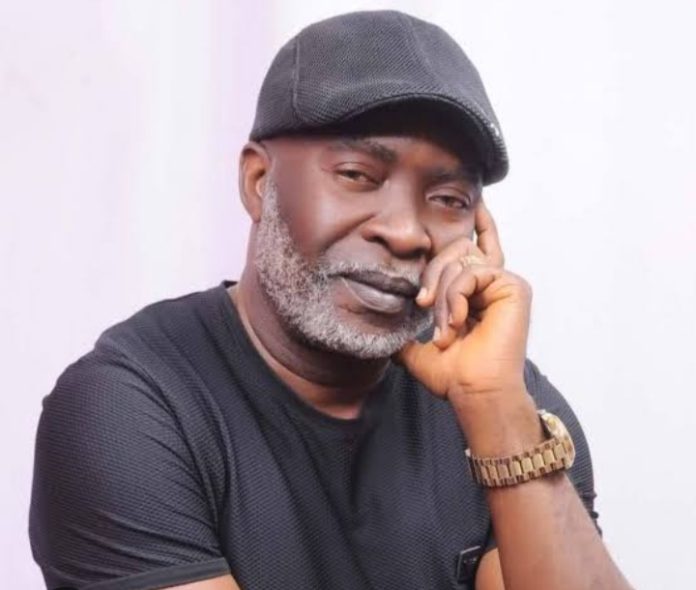News
Concerns over Plans to De-Radicalise Boko Haram after Sack of Akilu

The future of a UK-backed programme to de-radicalise Boko Haram Islamists in Nigeria is in doubt after the British-trained expert who set it up was abruptly sacked by President Muhammadu Buhari’s government.
The expert has been replaced by a colonel in the military, robbing the programme not only of its chief architect but also its civilian face.
According to Telegraph, UK influential newspaper, Fatima Akilu, an NHS-trained psychologist who was educated at a boarding school in Kent, set up a pioneering national scheme to rehabilitate Boko Haram members and spread counter-extremist messages.
The first such scheme of its kind in Nigeria, it was hailed as a key plank in the government’s long-term strategy to tackle Boko Haram, who are blamed for the deaths of 10,000 people across northern Nigeria in the past five years.
Two weeks ago, however, Ms Akilu was removed from her post as part of a clear-out of the entire top tier of the country’s national security agency by its new head, retired Major General Babagana Monguno.
He was appointed by President Buhari, the ex-general who swept to power in May’s elections.
Ms Akilu has now been replaced by a colonel in the military, robbing the programme not only of its chief architect but also its civilian face.
The programme had been designed to be civilian-led so as to have greater success in winning the confidence of insurgents. It had been funded by the EU to the tune of £5.6 million and an unknown amount by the UK.
There are concerns now that without its original backer, the scheme may end up being quietly sidelined, depriving Nigeria of its only counter-extremism scheme.
A source close to the government told the Telegraph: “The decision to remove Fatima came without any warning and now she has been replaced by a military man that nobody has heard of.
“Her staff are not happy about what has happened, and many are considering whether to stay or not.”
The question marks over the programme come as Boko Haram continues to pose a major threat to Nigeria, despite Mr Buhari’s pledges to crush it. On Monday, the group claimed responsibility for multiple suicide bombings over the weekend that killed 18 people around the capital, Abuja.
Ms Akilu, who was educated at the Beechwood Sacred Heart boarding school in Tunbridge Wells, set up the scheme last year at the invitation of Mohammad Sambo Dasuki, a national security adviser under the previous president, Goodluck Jonathan.
She had previously been working as a children’s author and adviser to troubled teenagers, but caught Mr Dasuki’s attention after writing a series of articles on the importance of education in drawing Nigerian youngsters away from trouble.
The programme focused partly on educating young Nigerians about the dangers of radicalisation in the first place, and also on trying to rehabilitate the thousands of Boko Haram suspects already in jail.
Suspects would be challenged by imams on their radical views, and also given access to sports facilities and classes in computing and craft skills.
It was considered to be innovative in Nigeria, where “hearts and minds” has never been a strong aspect of counter-terrorism strategy.
“The project was just beginning to bear fruit,” said the source. “At first the Boko Haram prisoners wouldn’t even talk to us, but we had reached the point where both were at least taking part in the programme. Some of the ex-commanders were even telling us about other commanders in other jails that might also be persuaded to take part.”
News of Ms Akilu’s removal first emerged on social media in Nigeria, and has been the subject of much speculation since.
Some believe that Mr Buhari, who was elected on pledges to take a tough approach with Boko Haram, is not convinced that “softer” strategies work. Others say he may not even have been aware of her removal.
Another theory is that she was the victim of score settling between the Jonathan and Buhari camps, which date back to Mr Buhari’s brief time as military ruler of Nigeria in the mid-1980s. Ms Akilu’s ex-boss, Mr Dasuki, is said to have been among a team of soldiers who arrested Mr Buhari shortly after his overthrow that year.
This summer, three of Mr Dasuki’s houses were raided on suspicion that he was involved in “undermining” national security, leading to him eventually being charged with possession of an unlicensed pistol. The Nigerian government denies that there has been any kind of witch hunt.
A Western official linked Ms Akilu’s removal to the wider clear-out in the NSA, but said there had been problems with the programme in the first place.
“Fatima set the programme up and had a lot of good ideas, but there were some shortcomings, partly in her team’s own capacity to run it, and partly in the lack of buy-in from the Nigerian military, who at the end of day need to be onside for this kind of thing.
“We hope that the programme will continue, and that this can become an opportunity to get more buy-in from the military and make it better than it was.”
An EU source said: “We are maintaining close contact with the office of the national security adviser staff and with the technical assistants working on the EU funded activities to evaluate the impact of the recent staff changes.”
The Nigerian government did not respond to requests for comment.
News
Okonjo-Iweala Urges Nigeria to Shift from Importing Tech to Local Manufacturing

Dr. Ngozi Okonjo-Iweala, Director-General of the World Trade Organisation, WTO, has urged Nigeria to move decisively beyond importing technology to manufacturing it locally, warning that sustained dependence on foreign technology weakens the country’s industrial base and constrains job creation in the digital economy.

Speaking at Ahmadu Bello University, ABU, Zaria, Okonjo-Iweala said the current disruption of the global order, driven by technology, geopolitics and climate pressures, presents both serious risks and unprecedented opportunities for Nigeria and Africa, if they are prepared to act strategically.
“It is always a pleasure to come home to Nigeria, but it is particularly special to be here at one of the country’s most important seats of learning,” she said, stressing that universities such as ABU must remain central to Africa’s technological, industrial and economic transformation.
Tracing Nigeria’s post-independence journey, Okonjo-Iweala recalled that at independence in 1960, the country had only one degree-awarding institution, making the rapid expansion of universities a critical pillar of nation-building.
She noted that institutions such as ABU laid the foundation for Nigeria’s scientific, technological and entrepreneurial capacity.
Founded in 1962 as the University of Northern Nigeria, ABU has evolved into a multidisciplinary institution producing graduates across engineering, medicine, sciences, ICT, public administration and the humanities.
“Research conducted here has advanced the frontier of knowledge and offered practical solutions to real-world problems, from animal feed innovations during dry seasons to wind power generation in rural areas,” she said.
Turning to global trends, the WTO chief identified technology, particularly the internet and artificial intelligence, AI, as one of the most disruptive forces reshaping trade, production and employment worldwide.
“The technological shift we are experiencing has made it easier to communicate, produce and trade, but not everyone has shared equally in the gains,” she said, warning that automation and AI could deepen inequality if not properly managed.
She stressed that multilateral institutions and global trade rules must evolve to respond to emerging technologies such as AI and quantum computing.
“We need a new kind of multilateralism, one that is nimble, responsive and capable of addressing new global opportunities,” she said.
Okonjo-Iweala said Africa stands to benefit from what the WTO now describes as “re-globalisation”, the diversification of global supply chains away from over-dependence on a few countries.
She identified opportunities in labour-intensive manufacturing, critical minerals processing, renewable energy technology, pharmaceuticals, agro-processing and electric vehicle, EV, supply chains.
“Africa has the capacity to process its critical minerals all the way to EV battery manufacturing,” she said, pointing to Nigeria’s emerging lithium processing investments and vast renewable energy potential.
Reinforcing her call for local technology production, she said Nigeria must stop importing technologies it can manufacture domestically.
“Instead of importing solar panels, we should be manufacturing them here. That is how we create jobs, build resilience and grow our economy,” she said.
Okonjo-Iweala warned that Nigeria’s projected economic growth of 4.4 percent remains insufficient once population growth is factored in, calling for sustained growth of 6 to 7 per cent driven by productivity, technology and value addition.
She said achieving this would require strong digital infrastructure, skills development and innovation-friendly policies, alongside full implementation of the African Continental Free Trade Agreement, AfCFTA.
“Technology-enabled trade and deeper regional integration could increase intra-African trade by up to 45 per cent and lift millions of people out of poverty,” she said.
With Africa projected to account for about 25 per cent of the global working-age population by 2050, Okonjo-Iweala described Nigeria’s young population as one of its greatest technology assets.
“On an ageing planet, Africa’s youth represent the world’s future talent pool,” she said, urging universities, policymakers and the private sector to better align education, innovation and industrial strategy.
She, therefore, called for stronger collaboration between academia, industry and government to ensure Nigeria does not miss the opportunities created by global technological disruption.
“This country has what it takes. What we need is urgency, coordination and the courage to invest in our people and our ideas,” Okonjo-Iweala said.
News
Stanley Amandi, Nollywood Actor Arrested over Alleged Coup Plot against Tinubu

Stanley Amandi, veteran Nollywood actor and filmmaker, has been arrested by the Nigerian military over his alleged role in a foiled coup plot to overthrow President Bola Tinubu’s government, according to an exclusive report by Premium Times.

Stanley Amandi, Nollywood Actor
The filmmaker, also a former chairman of the Actors Guild of Nigeria (AGN) Enugu State chapter, was reportedly detained in September 2025 alongside several military officers accused of planning a violent overthrow, including potential assassinations of top officials, according to the newspaper’s sources.
Reports indicated that the coup plotters planned to wholesale assassination of top government officials including President Tinubu, Vice President Kashim Shettima, Senate President Godswill Akpabio, and Speaker of the House of Representatives Tajudeen Abbas, among others.
On Monday, the Defence Headquarters confirmed the plan to illegally oust the Tinubu administration, saying the indicted officers will be arraigned before military judicial panels.
In its statement, the Defence Headquarters said the investigation has been completed and forwarded to “appropriate superior authority in line with extant regulations.”
According to the military, the investigation was “comprehensive” and conducted in line with established procedures, examining “all circumstances surrounding the conduct of the affected personnel.”
The military disclosed that the findings identified “a number of the officers with allegations of plotting to overthrow the government,” describing such conduct as “inconsistent with the ethics, values and professional standards required of members of the Armed Forces of Nigeria.”
Mr Amandi has featured in many Nollywood movies and is known for his work as an actor, production manager and director.
His notable works include “The Album,” where he served as director; “Tiger King,” where he also served as director and produced in 2008; “Cornerstone,” produced in 2019; and “Once Upon a Dream,” in which he appeared as an actor in 2024.
Mr Amandi’s last Instagram post was on 19 September 2025, shortly before his arrest.
News
Firms Commit to Boost African Robotics Market

AfricAI and Micropolis Robotics have signed a multi-year exclusive distribution and deployment agreement, which marks one of the continent’s most significant robotics market entries.

Micropolis AI Robotics is a United Arab Emirates-based robotics manufacturer operating in autonomous systems, while AfricAI is a company building practical, revenue-driven artificial intelligence (AI) systems for African businesses, governments, and global partners operating in emerging markets.
According to the agreement, Micropolis Robotics named AfricAI as its exclusive continental partner, prohibiting direct sales, alternative distributors, and third-party agents from operating in the territory.
The partnership establishes AfricAI as the primary execution, localisation, and go-to-market platform for intelligent robotics in Africa’s industrial, security, logistics, and infrastructure sectors.
AfricAI said this exclusive mandate positions the company as the gateway for advanced autonomous systems entering African markets, ensuring regulatory compliance, local capacity building, and sovereign control over deployment frameworks.
The partnership, according to the two parties, moves beyond software- based AI into the realm of physical AI — intelligent machines capable of operating in complex, real-world African environments.
“This is not a collaboration, it is a market-shaping mandate,” said Fareed Aljawhari, CEO of Micropolis Robotics. “AfricAI now represents the exclusive gateway through which Micropolis technologies enter Africa. Their sovereign AI vision, operational reach, and regulatory fluency make them the only partner capable of executing at a continental scale.
Furthermore, the agreement enables AfricAI to integrate Micropolis’ autonomous robotics systems with AfricAI’s sovereign AI stack, resulting in AI-powered security and surveillance platforms, robotics-enabled logistics and port operations, industrial automation, smart infrastructure, and municipal robotics tailored to African operating conditions.
Initial deployments will commence in security, smart infrastructure, and logistics, with phased expansion across multiple African states as part of AfricAI’s broader continental AI, data, and intelligent infrastructure strategy.
The agreement also includes long-term performance-linked expansion rights, automatic renewals, and a defined localisation framework to support robotics deployment, workforce training, and skills transfer across Africa.
Prince Malik Ado-Ibrahim, executive chairman of AfricAI, said: “Africa does not need imported automation — it needs sovereign, context-aware intelligent systems. This exclusive mandate allows AfricAI to industrialise robotics deployment at scale while retaining control, compliance, and value creation on the continent.”

 General News2 days ago
General News2 days agoNigeria’s Data Privacy Economy Hits ₦16.2bn – NDPC Commissioner

 News3 days ago
News3 days agoStanley Amandi, Nollywood Actor Arrested over Alleged Coup Plot against Tinubu

 E-Business3 days ago
E-Business3 days agoKaspersky Launches OT Calculator to Align Cybersecurity Investments with Business Goals

 E-Financial3 days ago
E-Financial3 days agoFBNQuest Merchant Bank Rebrands as Quest Merchant Bank

 Telecom2 days ago
Telecom2 days agoAirtel Africa Records $586m Rise in Profit on FX Gains, Tariff Hike

 Telecom2 days ago
Telecom2 days agoAfrica’s AI Guru Abodunrin Charts Path to Continent’s Digital Dominance

 E-Financial2 days ago
E-Financial2 days agoFitch Downgrades Afreximbank to ‘BB+’/Stable Amid Concerns Over Ghana’s Debt

 News2 days ago
News2 days agoOkonjo-Iweala Urges Nigeria to Shift from Importing Tech to Local Manufacturing















